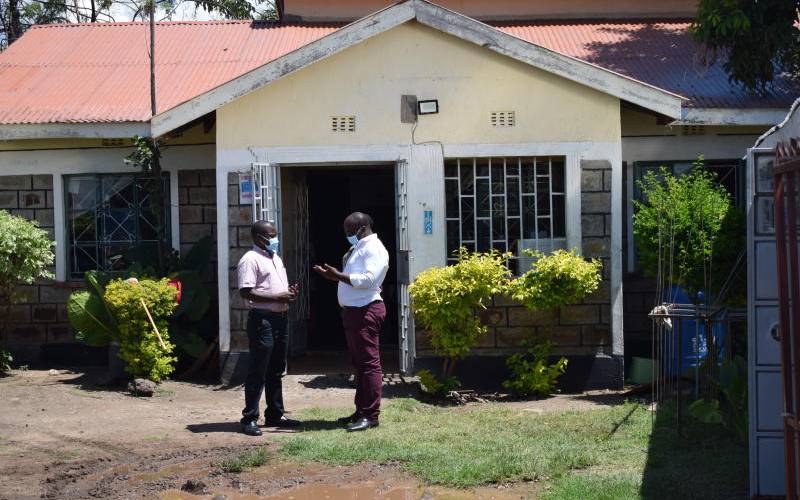×
The Standard e-Paper
Stay Informed, Even Offline

Impact Research and Development Organisation’s Technical Advisor on Key Population Stephen Ojowi and Communication Officer John Riaga consult at a Drop-In Center (DIC) in Mbita town. [James Omoro, Standard]
A group of sex workers in Homa Bay County has appealed to the government to provide health facilities with anti-retroviral (ARV) drugs to prevent deaths.